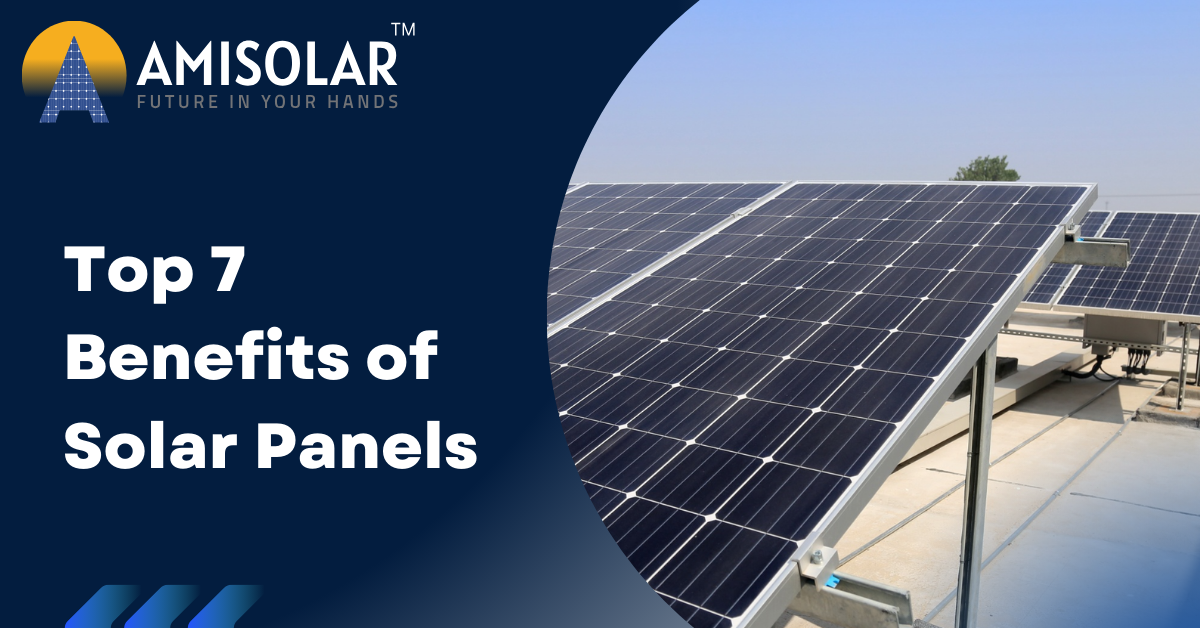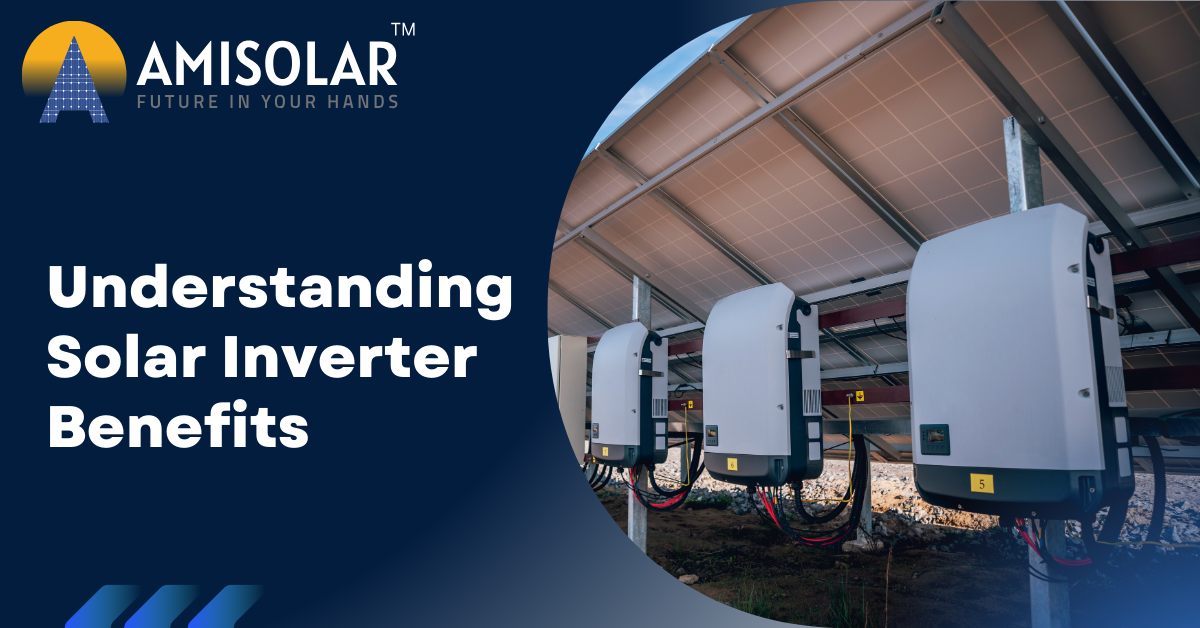Solar energy is becoming increasingly popular as a sustainable and cost-effective alternative to traditional energy…

Solar panel have revolutionized the way we harness energy from the sun, offering a clean, renewable, and sustainable alternative to traditional fossil fuels. In this blog, we’ll explore the top seven benefits of solar panel, highlighting their transformative impact on energy generation, environmental conservation, and economic empowerment.
Clean and Renewable Energy
Solar panels generate electricity by converting sunlight into energy without producing harmful emissions or pollutants, making them a clean and renewable source of power. By harnessing the abundant energy of the sun, solar panels contribute to reducing greenhouse gas emissions and mitigating climate change.
Cost Savings on Electricity Bills
Installing solar panels allows homeowners and businesses to generate their electricity, reducing reliance on grid power and lowering electricity bills. With solar energy, users can lock in fixed energy costs for decades, providing long-term savings and protection against rising utility rates.
Financial Incentives and Subsidies
Many governments offer financial incentives and subsidies to promote solar energy adoption, including tax credits, rebates, and feed-in tariffs. These incentives help offset the initial investment cost of solar panel installations, making them more accessible and affordable for homeowners and businesses.
Energy Independence and Security
Solar panel provide a decentralized energy source, allowing users to generate electricity on-site and reduce dependence on centralized power grids. This enhances energy independence, resilience, and security, especially in remote areas or during grid outages or emergencies.
Environmental Benefits
Solar energy production has minimal environmental impact compared to fossil fuel-based energy generation. By reducing reliance on coal, oil, and natural gas, solar panels help conserve natural resources, protect ecosystems, and preserve air and water quality, leading to a cleaner and healthier environment.
Job Creation and Economic Growth
The solar industry creates jobs in manufacturing, installation, maintenance, and related sectors, driving economic growth and providing employment opportunities. As solar technology advances and market demand grows, the solar industry continues to be a significant contributor to job creation and economic development.
Increased Property Value
Homes and businesses equipped with solar panels often have higher property values and sell faster than those without solar installations. Solar panels are considered a desirable feature for environmentally conscious buyers and investors, offering a competitive edge in the real estate market.
Frequently Asked Questions
How do solar panels work?
Solar panels work by converting sunlight into electricity through photovoltaic cells. When sunlight hits the solar panels, it creates an electric field, generating direct current (DC) electricity. This DC electricity is then converted into alternating current (AC) electricity using an inverter, which can power homes, businesses, and other electrical devices.
Are solar panels suitable for all types of buildings?
Yes, solar panels are suitable for a wide range of buildings, including residential homes, commercial buildings, industrial facilities, and agricultural structures. However, factors such as roof orientation, shading, and available roof space may affect the efficiency and suitability of solar panel installations.
What is the lifespan of solar panels?
Most solar panels have a lifespan of 25 to 30 years or more, with many manufacturers offering performance warranties for up to 25 years. With proper maintenance and care, solar panels can continue to generate electricity efficiently for decades, providing long-term benefits and savings.
Do solar panels require maintenance?
Solar panels are relatively low maintenance, requiring occasional cleaning to remove dirt, dust, and debris that may accumulate on the surface. Additionally, regular inspections and maintenance checks by qualified professionals can ensure optimal performance and longevity of solar panel systems.
Can solar panels work during cloudy or rainy days?
While solar panels are most effective in direct sunlight, they can still generate electricity on cloudy or rainy days, albeit at a reduced efficiency. Solar panels can produce electricity even in diffused sunlight, allowing them to continue generating power during less sunny weather conditions.
Are there any incentives or subsidies available for installing solar panels?
Yes, many governments offer financial incentives and subsidies to promote solar energy adoption, including tax credits, rebates, feed-in tariffs, and net metering programs. These incentives help offset the initial investment cost of solar panel installations and make them more affordable for homeowners and businesses.
How can I determine if my property is suitable for solar panel installation?
A solar energy expert can conduct a site assessment to determine the suitability of your property for solar panel installation. Factors such as roof orientation, tilt, shading, available roof space, and local regulations will be considered to assess the feasibility and potential output of a solar panel system.
Conclusion
Solar panels offer a multitude of benefits, from clean energy generation and cost savings to environmental conservation and economic prosperity. By harnessing the power of the sun, solar energy empowers individuals, communities, and nations to build a more sustainable and resilient future. As solar technology continues to evolve and become more accessible, the benefits of solar panels will play an increasingly vital role in shaping our energy landscape and driving positive change for generations to come.

